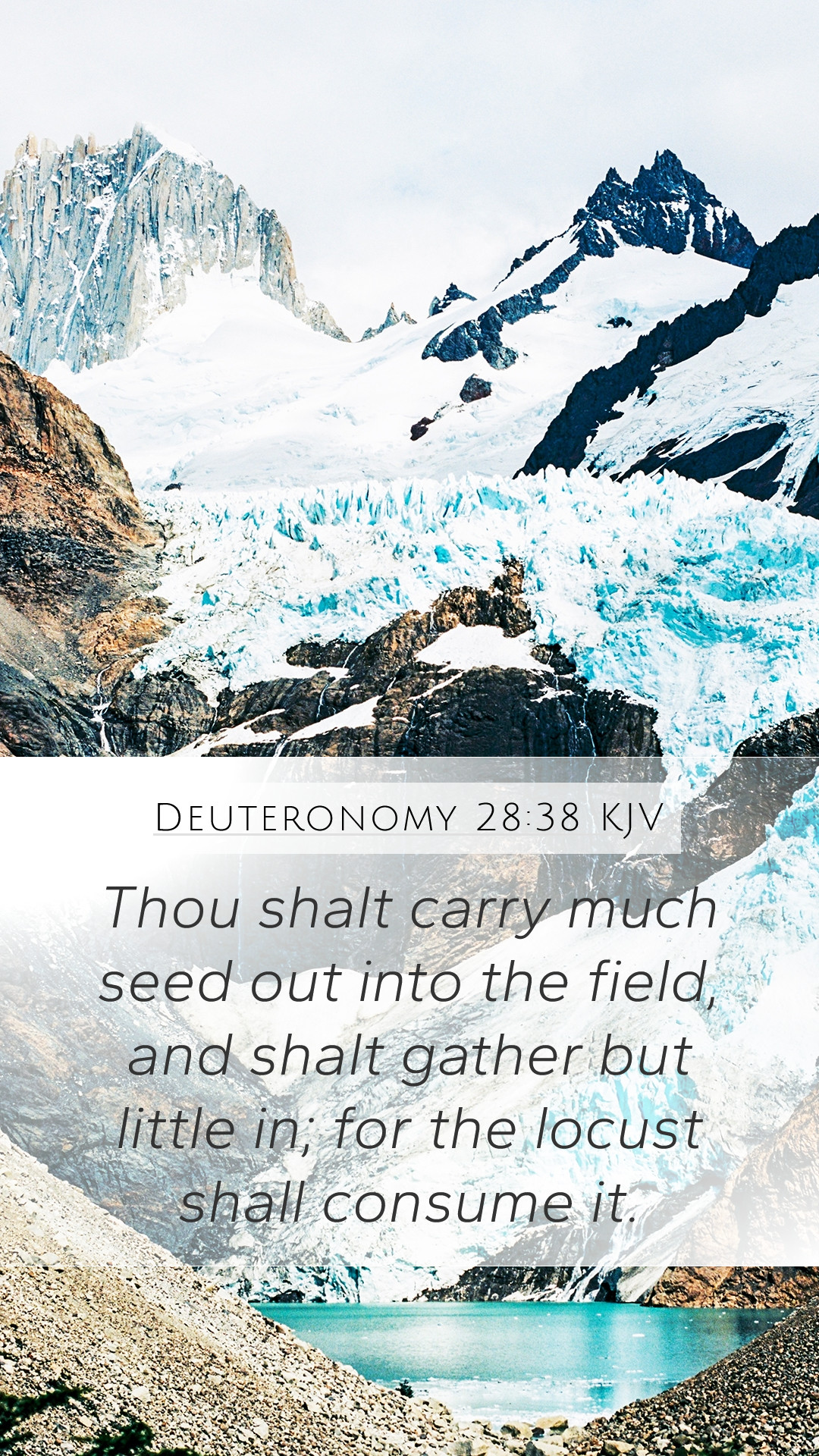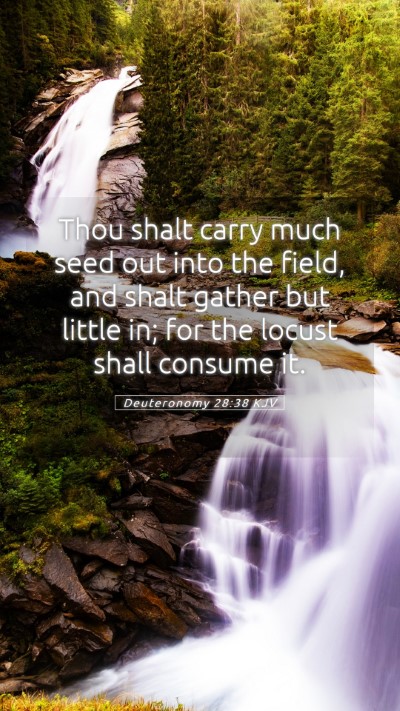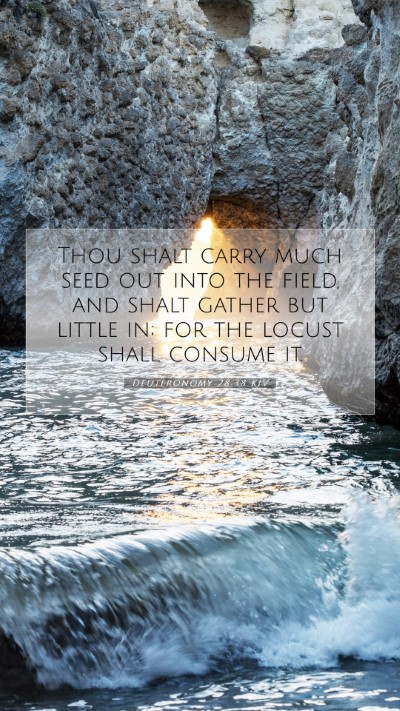Bible Verse Interpretation for Deuteronomy 28:38
Understanding Deuteronomy 28:38: This verse reads, "Thou shalt carry much seed out into the field, and shalt gather but little in; for the locust shall consume it." This scripture encapsulates a warning of impending judgment and serves as a vivid illustration of scarcity resulting from disobedience to God's commandments.
Bible Verse Meanings
In seeking bible verse meanings, it is imperative to recognize that this verse reflects the consequences of failing to adhere to God’s laws. The imagery of sowing much yet reaping little poignantly symbolizes the futility faced by those who do not walk in the right paths ordained by God.
Bible Verse Explanations
Through bible verse explanations, we can delve deeper into the themes of divine judgment and blessing. The abundance of sowing contrasted with the barrenness of the harvest highlights God's covenant promises—when they are kept, blessings flow, but when they are disregarded, punishment ensues.
Commentary Insights
- Matthew Henry Commentary: Henry emphasizes that this verse reveals the disappointment and lack of success that comes from pursuing endeavors without God's favor. The locusts are a metaphor for divine intervention where God withdraws His blessings, leading to loss.
- Albert Barnes Notes: Barnes interprets this as an illustration of the hardships that result from rebellion against God. He draws attention to agricultural metaphors that would resonate with the Israelite audience, illustrating real-life consequences of spiritual neglect.
- Adam Clarke Commentary: Clarke provides insight into the symbolic nature of locusts, explaining them as a representation of locust plagues that were historically significant to the Israelites. He points out that this reflects God’s control over nature as a means to enforce obedience.
Scripture Analysis
In terms of scripture analysis, this verse stands in the broader context of Deuteronomy 28, which contains blessings for obedience and curses for disobedience. Deuteronomy 28:38 serves as a chilling reminder of what can happen when the covenant relationship with God is compromised.
Historical Context
The historical context of this verse is crucial for understanding its implications. During the time this was written, the agricultural economy was central to Israel's livelihood. Thus, the warnings about crops being destroyed by locusts would have been particularly poignant for the Israelite society.
Application of Deuteronomy 28:38
When it comes to the application of this verse in our lives, it encourages us to reflect on our own actions in relation to God’s commandments. It serves as a powerful reminder of the importance of remaining faithful, as neglecting spiritual duties can lead to tangible consequences in our lives.
Related Bible Cross References
- Joel 1:4: "That which the palmerworm hath left hath the locust eaten; and that which the locust hath left hath the cankerworm eaten; and that which the cankerworm hath left hath the caterpillar eaten." This emphasizes the theme of destruction caused by locusts.
- Malachi 3:11: "And I will rebuke the devourer for your sakes, and he shall not destroy the fruits of your ground; neither shall your vine cast her fruit before the time in the field, saith the Lord of hosts." It highlights God's promise to protect the harvest of those who are faithful.
- Exodus 10:4: "Else, if thou refuse to let my people go, behold, tomorrow will I bring the locusts into thy coast." This serves as a reminder of the destructive power of locusts as a sign of judgment upon Egypt for not obeying God's command.
Conclusion
Overall, Deuteronomy 28:38 presents a stark and sobering message about the effects of disobedience, illustrated through the metaphor of crop failure due to locusts. It provides rich Bible study insights for individuals seeking to learn about the consequences of straying from God's path. In understanding Scripture through historical context and commentaries, we gain valuable lessons applicable to our spiritual journeys.
Further Bible Study Resources
For those interested in exploring more about this and other Bible study topics, consider utilizing various Bible study guides or participating in online Bible study groups to enhance your understanding and application of the Scriptures.


